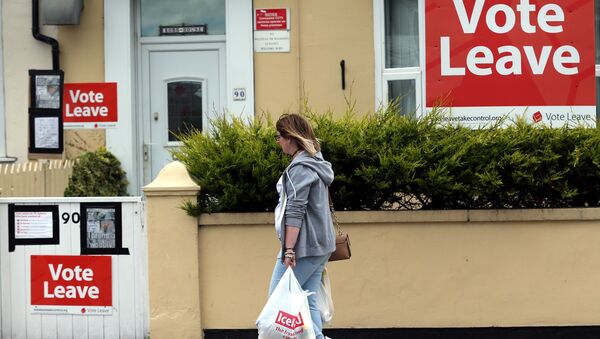Research by the Joseph Rowntree Foundation has found that those who live in poverty and who felt they had been pushed to the margins of society, were key in helping to achieve the "Leave" vote. The study shows the stark divisions across income, skills and education in British society and how that came into play when people voted in the Britain's EU referendum on June 23.
It found support for the "Leave" campaign was much higher among those with low incomes, the unemployed and people in precarious manual occupations than those in the wealthiest households.
‘Double whammy’ of low skills and lack of opportunity led to Brexit — new analysis by @GoodwinMJ for @jrf_uk: https://t.co/CwzuZ3NMbt
— Joseph Rowntree Fdn. (@jrf_uk) 1 September 2016
In households with incomes of less than US$26,000 per year, the average support for "Leave" was 58 percent, whilst in households with incomes over US$66,000 per year, support for leaving the EU was only 35 percent, the study found.
Julia Unwin, Chief Executive of the Joseph Rowntree Foundation believes that Britain cannot afford the "business as usual" mentality, following the vote to leave the EU. The result was a wake-up call, as for too long the country's prosperity passed some people by and they missed out on opportunities for a better life.
"With energy focused on the process of leaving the EU, there's a danger the concerns of people at home are ignored. This analysis should act as beacon for politicians who often talk about representing the concerns of ordinary people," Julia Unwin told Sputnik.
Ms. Unwin believes that the rapid change in the economy has left too many people without the skills and opportunity to get on in life and that the government must act to ensure prosperity reaches all corners of the country, providing everyone with the chance to earn a good wage in a secure job.
"Theresa May has made the right noises to overcome this and heal the divisions with a promise to make Britain work for all. The priority is making good on this promise, Ms. Unwin told Sputnik.
@jrf_uk @juliaunwin nothing to do with EU more dissatisfaction with Politicians running the country EU got blamed for everything
— connie sullivan (@MrConnieS) September 1, 2016
Matthew Goodwin, author of the study and a professor at the University of Kent, said that the research reveals how the referendum was not simply about our relationship with the European Union, but that it also sheds light on the deep divides that exist in society.
"The findings of our research point to the importance of both people and place. It wasn't only that people who are struggling tended to support Brexit, but also in some cases, more skilled people who reside in low-skilled areas. This is a crucial finding as it speaks as much to the debate about how to ensure that people have the same opportunities as it does to questions about poverty, educational inequality and disadvantage," Professor Goodwin told Sputnik.


